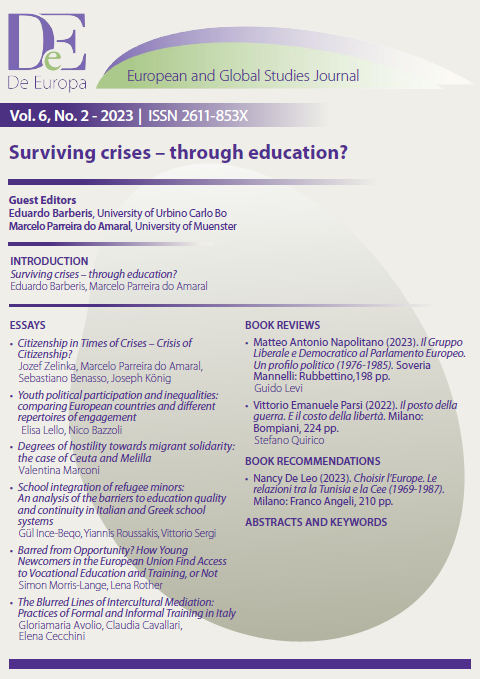School integration of refugee minors: An analysis of the barriers of education quality and continuity in Italian and Greek school systems
DOI:
https://doi.org/10.13135/2611-853X/7135Abstract
In recent years, the number of minor migrants, both accompanied and unaccompanied, arriving in European countries increased significantly. The impact of newcomers on the school systems of various European countries has highlighted problems in education continuity and in the accomplishment of educational goals. Relying on the preliminary data from the Erasmus+ KA2 project “Continugee” in Italy and Greece, this paper analyses the current policies and practices used in refugee children education. In addition to policy analysis, interviews with families, teachers and professionals operating in migrant shelters and schools were conducted, aimed to address both institutional and relational dimensions of schooling and to point out good practices in educational incorporation of refugee youth. Research shows that – notwithstanding a common concern throughout Europe, national and local regulations, and local practices do affect their access to quality education. Age limits, gender gaps, location of shelters, lack of adequate institutional educational facilities and of professional training make effective educational placement and continuity difficult. Schools have a very different level of effectiveness and European policy innovation is often jeopardized by lack of resources and staff motivation. Recognition of qualifications and skills, a supported participation into mainstream education, and a participatory approach with families and guardians are essential for effective school integration.
Keywords: refugee, minors, education, training, policy, European




 The journal has been approved for inclusion in DOAJ. The DOAJ listing of the journal is available at
The journal has been approved for inclusion in DOAJ. The DOAJ listing of the journal is available at 

